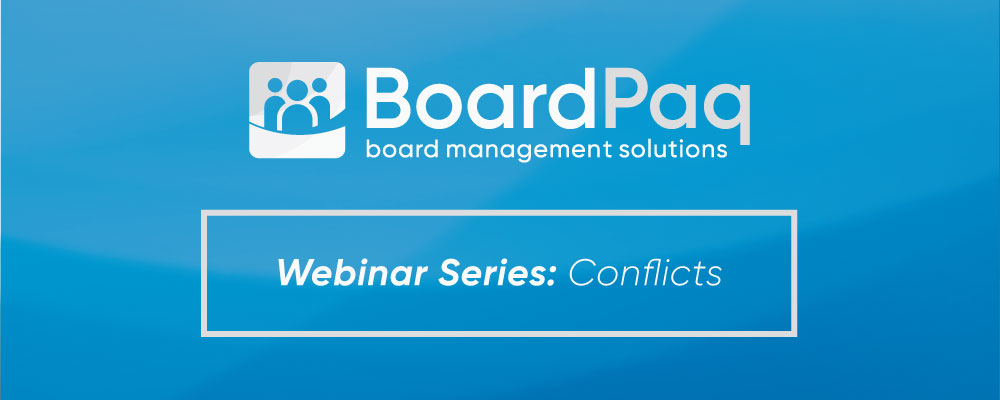Blog

Handling Conflicts of Interest
By BoardPaq, January 12, 2018
What is a
conflict of interest?
A conflict
of interest is any transaction in which a director of the corporation has a
material interest. For example, if you sell insurance and you sit on a board
who needs insurance, it would most likely be a conflict of interest for you to
sell it to the board.
Should a
professional have to choose between being a trustee and a vendor?
Depending on
the board you sit on, professionals might have to make a choice to either be a
trustee or a vendor, not both. Either way, you should always disclose up front
any possible conflicts of interest that could arise in the future.
When a
conflict of interest does arise, how should you deal with it?
Your board
should develop a plan in case there is ever a conflict of interest. If there is
a conflict of interest that wasn't disclosed, then it is common to either find
a way to make it work or let that board member go. Again, it all depends on the
policies that your board has set in place.
What are
the 4 principles of good governance?
1. Awareness. Good organizations should have conflict policies, so
that they are aware of any possible conflicts from their board members.
2. Disclosure. Once you are aware of a possible conflict of interest,
you must disclose it to the organization board immediately.
3. Recusal. If someone has a conflict of interest on a certain
topic, then that person should exit the room when the topic is being discussed.
That way, there is no bias.
4. Independent
Review. If someone has a conflict of
interest but still wants to handle the job (for example, a insurance agent
doing the board's insurance), then the decision needs to be made by the board as
a whole without that person in the room. If a decision can not be made, then
the situation should be brought to the board’s lawyer.
What is
“duty of loyalty” on a board?
As a board
member you have a duty of loyalty and a duty of care. Duty of loyalty means you
should be loyal to the organization and not to yourself as an individual. Duty
of care means that you must keep things within your board confidential at all
times.
Can
founders have a conflict of interest?
Absolutely.
As businesses grow, especially in the non-profit world, it is common for
founders to have conflict of interest issues because founders tend to grow very
close to their businesses, which makes it hard for them to have honest
judgments.
Can you
serve on a board and be a staff member/trustee of a competing organization?
Generally
no, but it does happen. The problem with this is that it is hard to be
objective and not biased over one board, although you might think you are.
| Tweet |